
At one point in our lives we started to ask questions about Why we do things in a certain way and How can we do it better. Most of us grew out of this habbit, but the rest of us can never settle anymore. During our crusade for meaning, we came to realize, that there is an intense interconnectedness in the universe, one that can be only experienced by living, which is the constant journey of creation.
Concepts
One way to describe the journey of creation (spiritual, human or artificial) can be the following:
On a mental plane, an abstract idea grows into a Purpose, i.e. an inspiration to act upon. This idea gets channeled down to the physical world, and turns into a tangible Product. This material reflection, is merely an interface to the Purpose. Such as a steering wheel (Product) acts as an interface to the Purpose of controlling a vehicle.
This descent of creative energy into tangible reality can not happen on its own. On one hand, it requires a facilitator, who can handle the physical plane, People. On the other hand, to succeed, you require insight, a certain level of understanding of how things work. These we call Processes.
So to put it simply, we believe, that:
Thriving People utilize established Processes to transform a noble Purpose into a superb Product.
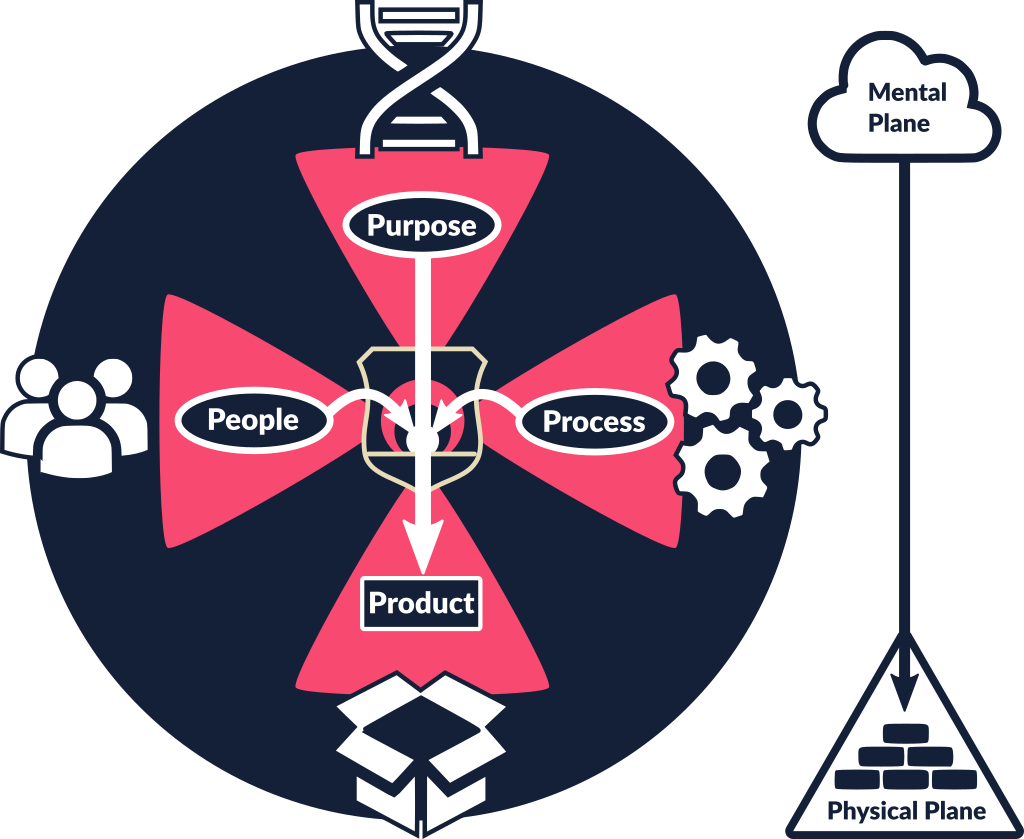
Contexts
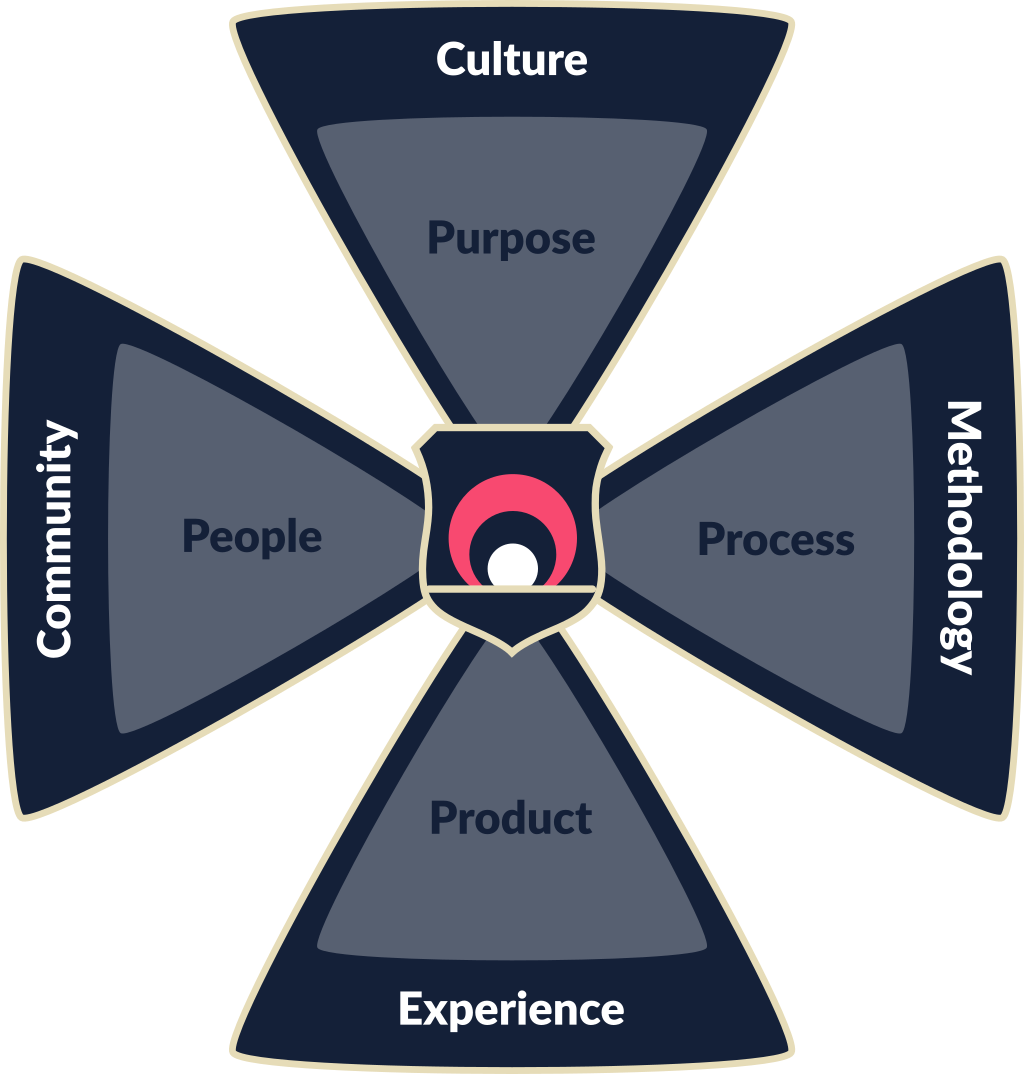
The above Concepts, are defined on an individual level. In reality more instances of these Concepts simultaneously co-exist, embedded into broader Contexts. These Contexts have the same characteristics as the Concepts, but they are much wider and deeper and there is an added level of detail and complexity in the ways their internal Concepts interact.
- A single person is interesting enough, but more individuals together form a Community, bringing entirely new dynamics to the table.
- Similarly, Processes can be bundled into frameworks, traditions, schools, and other higher abstraction layers, we collectively call Methodology.
- A Purpose originates from a wider context too, what we like to call a Culture.
- Even Products are not standalone entities, but part of a greater customer Experience.
Servant Cross
The below graphics – we colloquially call the Servant Cross – is a representation of all the above, a combination of the Concepts and Contexts. It tries to symbolize the process of creation vertically, from Purpose to Product and how horizontally People and Processes contribute to this (in other words, the 4 Concepts). It also shows the broader Contexts and tries to foster associations with the DNA, Gears, Box and Group icons.
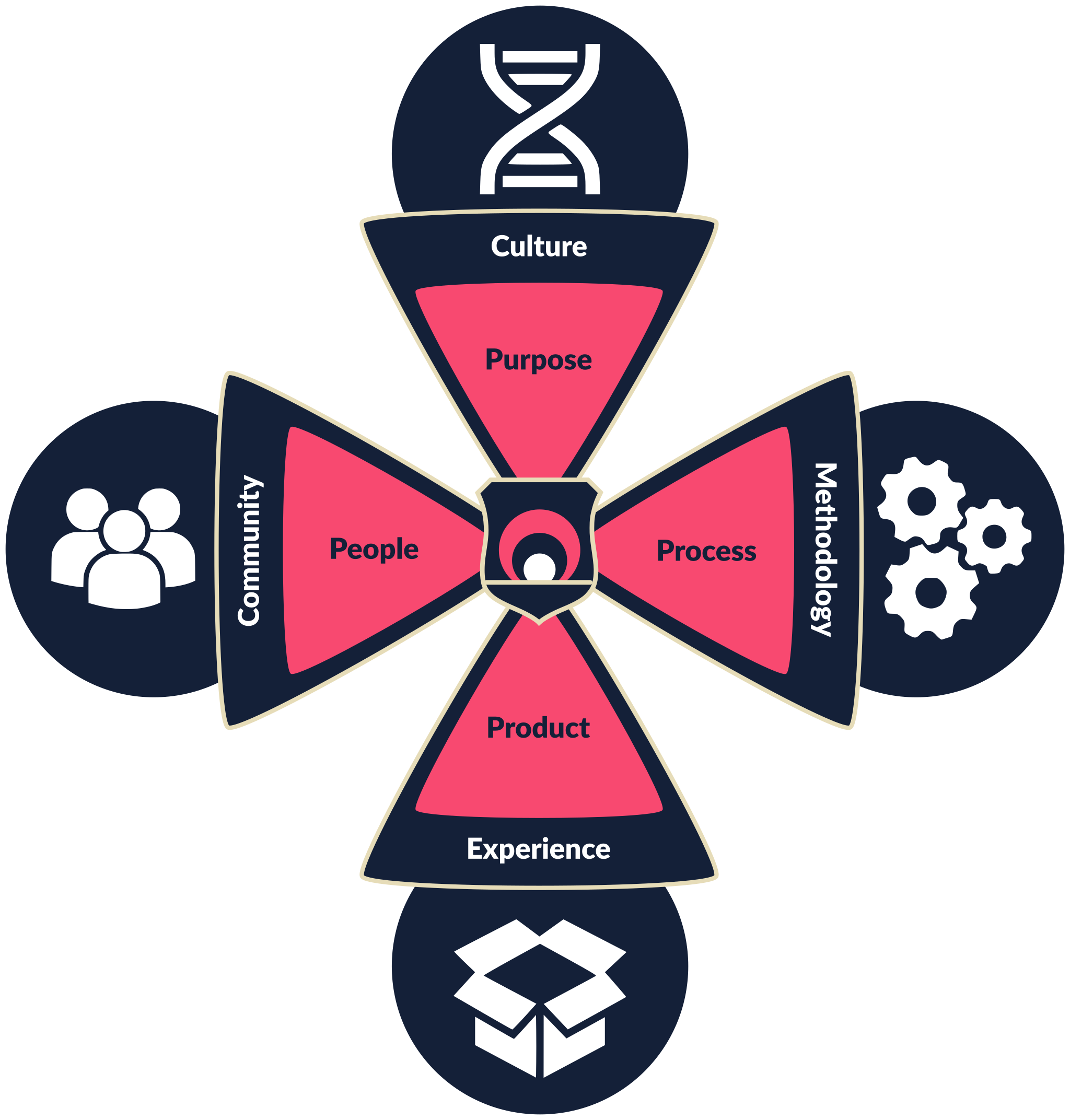
We strongly believe, that the interaction between the Concepts and their Contexts is very important and often overlooked. They very heavily intertwined, and understanding their complex organic network is key for success. It is also the primary measure of expertise in the field of organizational development. Similarly to the game Go – which is advertised as the most complex board game – it is probably not possible to entirely master this game either, but you can tell how far one progressed by her/his humbleness towards the intricate workings of the wonder of creation.
To bring this a little bit closer to our every day experience, here are some examples of these complexities:
- When you buy an Apple product, you are not buying a simple mobile phone, but an individual representation of a complete user Experience, which is homogenous throughout the entire product portfolio of the company. This is no wonder, as the individual Purposes defining the specific Products are all embedded into the same Culture of the organization. This connectedness from Culture to Experience makes a company consequent and strategic. Strategy is key for longer term operation, but can not thrive on a volatile Culture. Also without a visible Purpose and strategy, People can not commit to deliver the Products and due to the frequent changes in strategy they will advertise the organization within their Communities as a not very good place to work for, this way damaging the employee Experience. A lot of companies try to counterbalance this with desperate attempts labeled as employer branding, which are a blatant sign of not being a Purpose driven organization.
- Moreover, there is no such thing really as an employee. They are People, who happen to spend a significant portion of their time working together on a Product, serving an inspiring Purpose. These People have needs, they continuously evolve and interact in Communities, to satisfy them. Some of these Communities reach beyond the boundaries of the organization, some are even external to it. Good leadership tends to care about these People, their relations and happiness. It is not enough to school someone in assertive communication, to develop skills deemed necessary for management roles, it is equally important to help with her/his other challenges, even ones beyond the organizational internal Communities. Leaders should enable people, and that requires a holistic approach, not limited to daily productivity. Not to mention, that for us, humans, community is like water for fish. It is imperative, to foster establishment of Communities in an organization (and beyond) and not to spare expenses later on maintaining them. The informal networks formed this way, are the real backbone of operation, compared to the official structures. (More on these networks by Kotter). These thriving Communities are key to build a healthy organizational Culture to enable definition of inspiring Purposes.
- Multiple individual Processes utilized can easily hinder each other if not selected and configured properly. It takes experienced People and wide domain knowledge to understand what combinations are lucrative and what are disruptive. The newly emerging Methods Engineering discipline talks more about these challenges. So using randomly multiple Processes from multiple Methodology can lead to undesired consequences. But Methodologies can only be as good as the organizational Culture allows them to be. In a diverse Culture if the management Community is not serving the same Purposes and is not committed whole hearted to – for example – an upcoming process transformation (which is typical the case for organizational transformations), they will not lead by example, they will withdraw from execution. People will sense their absence, they will not believe in the new ways of doing things and as a result, the Product (the transformation) will be a toxic mutant of Processes originating from the old and new Methodologies. To add to that, even the best Methodology is worthless if not adopted by the respective Communities and such mutants will always be despised and frowned upon, augmenting the organizational Culture with the newly learn lesson, that Methodology X does not work.
Countless similar examples can be said about how these Concepts and Contexts interact, and we are very much eager to explore them within our community. As most good things have something in common, our model can easily be connected to other ones. Simon Sinek’s Golden Circle speech highlights the same Concepts, with different words. He says, that successful companies first define Why (Purpose) they do what they do and the How (Process) and What (Product) are derived from it. He does not talk about People directly, but as his whole modell is about how to inspire action, this Concept is implicit.
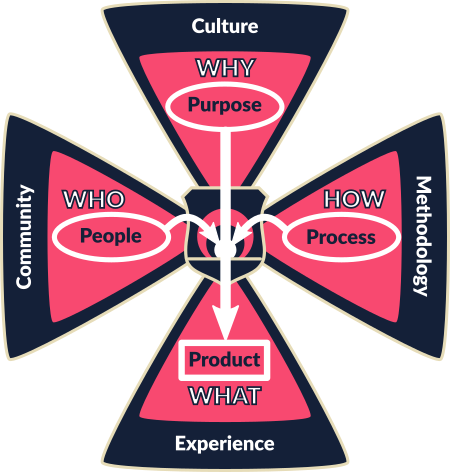
Mindset
Expanding on the above philosophy, our thinking and operation is deeply rooted in the following basic approaches. We are…
Human Centered

We strongly believe, that if people are happy and motivated, they automatically start to do the right thing. Optimizing processes, increasing product value, focusing on quality and so on, are all one’s natural internal drive. Everyone is dedicated to make the world a better place. The role of a modern leader is to unlock this intrinsic motivation in people and support them in evolving into their full potential. The best way to achieve this is to serve, thrive to remove the obstacles preventing others’ progress.
Value Centric
The power of people led this way are to be channeled into the creation of products which make the world a better place. Though there could be versatile definitions of what makes something valuable, we all have experienced good products. Everyone has felt that sparkling sensation, when using a product (or service) that really does what it is supposed to. This is what we are looking for! Everything we do is an attempt to provide the highest possible value to our users and preferably even to humanity.
Experience Based
Our personal stories and related battle-tested learnings are the greatest gift we can give to one-another. We are no fans of theoretic ponderings on possible approaches, but we are always eager to share and disseminate what really worked. This is a rule we follow in our community too, when providing peer support: Share your relevant experience and keep your judgment to yourself!
Values
During our collaboration we adhere to the following values and principles:
Openness
Others interest me, I would like to know them better, I support their presence. I am open towards alternative ideas.
Quality
I only deliver with the highest reasonable quality. My name is a guarantee for quality.
Proactivity
I try to help everywhere I can. I pick up tasks laying on the ground. I enjoy supporting and developing others.
Respect
I appreciate the values of others, their capabilities. I believe that everyone has something valuable and I treat people according to that.
Unity
Instead of my own, I thrive to maximize group level efficiency. I am happy to invest to support it.
Fairness
I support my allies. I try to establish long-lasting, mutually lucrative relationships. It is important for me to help others gain too.
Flexibility
Though I can justify my opinions, I am not fixated on them. I am willing to adapt to changing situations, needs, as long as my principles are not harmed.
Expansion
I am keen to learn, I am motivated when participating in projects enabling this. I believe, that continuous evolution is the key to survival. I am not lazy to broaden my knowledge.
Generosity
I enjoy sharing my resources and opportunities with others. Collective success is more important for me than my personal. I am in abundance and I create abundance around me.
Feedback
I am able to admit my mistakes or receive and accept critique. I take feedbacks as gifts and use them for my personal development.
Develop
I work hard to improve my imperfections or those in processes I support. I am consequent and strict in this area, I do the right thing and not what is the easier.

